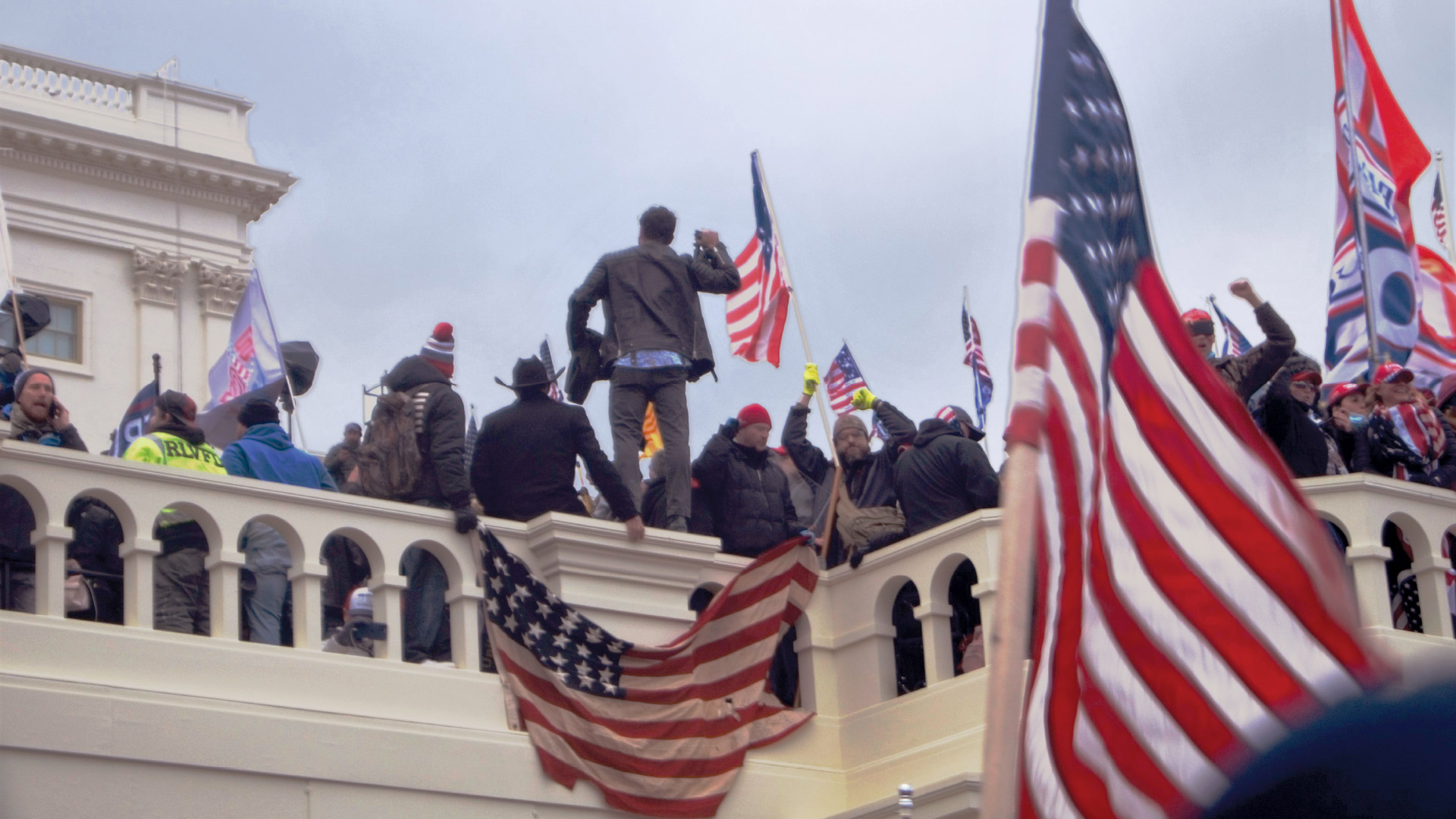
A U.S. Capitol police officer’s suicide following the January 6 riot has finally been declared a line-of-duty death after a law signed by President Biden in August to support law enforcement families.
According to authorities, the DOJ’s Public Safety Officers’ Benefits (PSOB) Program will award Capitol Police Officer Howard Liebengood’s family with a lump-sum payment in compensation for his death, which took place three days after he defended the Capitol from rioters on January 6.
Liebengood was patrolling the grounds of the Senate buildings the day of the riot and worked in the days following the event as well.
The officer’s family said that he encountered rioters but did not engage with them physically.
According to the National Fraternal Order of Police (FOP), Officer Liebengood’s claim will be the first under Biden’s Public Safety Officer Support Act to be approved for line-of-duty death benefits.
The law aims to provide benefits to families of officers who have committed suicide or suffer from PTSD.
“We were recently notified that the Department of Justice officially determined our beloved family member U.S. Capitol Police Officer (USCP) Howie Liebengood’s passing was in the line of duty under the PSOB program,” Liebengood’s family said in a joint statement following the DOJ’s designation.
“The determination is significant, healing, relieving, and we are grateful for it,” the family continued.
The determination, however, does not yet allow family members to access the deceased officers’ pension benefits, which are under the separate purview of the Department of Labor.
According to a spokeswoman, a request for such access is pending.
The Justice Department did not specifically mention Liebengood’s case in a statement but said its PSOB Program “works closely with survivors, injured officers and agencies to obtain the required documentation to comply with the PSOB law and its implementing regulations.”
A spokesman with the U.S. Capitol Police was happy with the outcome and declared suicide in law enforcement to be an important issue that needs more attention.
“Suicide has become an epidemic in the law enforcement profession. We will continue to work with the Liebengood family to address this important issue.”
National FOP president Patrick Yoes said the decision was “an important step in acknowledging that law enforcement suicides are service-connected and should be seen for what they are — line-of-duty deaths.”
“Howie’s family will always be part of our family,” Yoes added.
Virginia Senator Tim Kaine, who sponsored the death benefit bill, praised Liebengood for his patriotic service.
“He was a man who dedicated his life to serving others and spent 15 years defending the halls of democracy,” Kaine said. “His death in the wake of the horrors of the January 6 insurrection was a heartbreaking loss for his family and for every American who believes in the promise of our democratic institutions. We have a responsibility to carry with us his spirit of service and to give his family the recognition and unwavering support they deserve.”
Police agencies have gone back and forth on the issue of whether to classify suicides as line-of-duty deaths.
In March, D.C. Officer Jeffrey Smith’s widow was granted a full pension by the D.C. Police and Firefighters Relief and Retirement Board, despite opposition from agency leaders.
Smith took his own life after being injured in the riot.
D.C. Police Chief Robert J. Contee III disagreed with the decision, saying it was “pure speculation” that Smith’s suicide was linked to the events at the Capitol.
“This is an important step in a longer effort to change outdated processes and attitudes,” Liebengood’s family said. “We also hope that this helps other families who have felt the pain of losing a loved one to suicide.”
Two other D.C. police officers died by suicide in the months after the riot. Their families did not comment on the recent decision.
Officer Brian Sicknick was the other casualty from the events that day.
He died after an injury sustained during the riot. The death was deemed to be due to natural causes.





